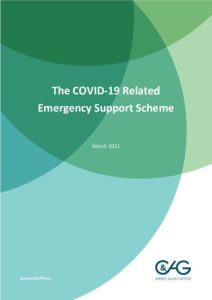
Monday 28 June 2021 - Report
Monday 28 June 2021 - Report
Topics: COVID-19
Departments: Treasury & Exchequer
Sector: Grants, Subsidies & Other Funding

Report: pdf (354.37 KB)
Download in full ↓The rapidly evolving nature of the COVID-19 pandemic called for an extraordinary response from the Government as it has sought to save lives and protect health and livelihoods in Jersey.
The principles of good governance, transparency, value for money, effective internal control and accountability for the use of public funds remain during a time of emergency. Whilst public financial management systems need to be responsive and flexible, it is essential that they continue to ensure value for money and minimise the risk of fraud and corruption.
An important part of the Government of Jersey’s response to the COVID-19 pandemic was the introduction, at pace, of schemes to provide financial support to businesses and individuals on the Island. These included the Payroll Co-Funding Scheme (PCFS), the COVID-19 Related Emergency Support Scheme (CRESS) and the Business Disruption Loan Guarantee Scheme.
This report evaluates the robustness of the processes and controls for the design and implementation of CRESS.
CRESS provided temporary financial support to workers with under five years’ residency who lost their normal employment income due to the COVID-19 restrictions. In particular, the objective of CRESS was to support workers who fell outside the PCFS and who were not eligible for public support under any other benefits.
My review of CRESS focusses on the following aspects of the scheme:
The Government moved quickly to develop and implement CRESS to support individuals who were not eligible for support under other schemes in place. In doing so, an appropriate balance was struck between the speed of response to the claimant and the controls put in place to guard against the risk of inappropriate payments.
CRESS provided support that was needed. However, it was difficult to administer due to the extent of the manual administrative processes required in a scheme set up quickly and without time to develop supporting IT systems. Going forward, the lessons learned from CRESS should be used to provide valuable input into the design of future schemes.
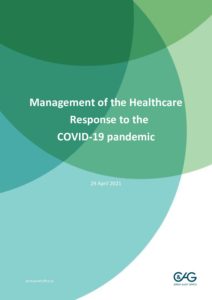
Thursday 29 April 2021 - Report
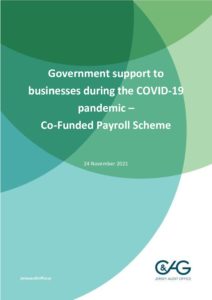
Wednesday 24 November 2021 - Report
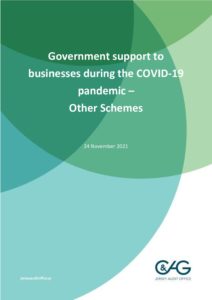
Wednesday 24 November 2021 - Report
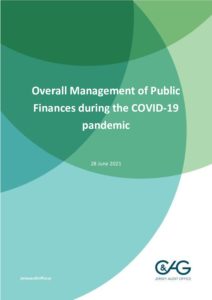
Monday 28 June 2021 - Report
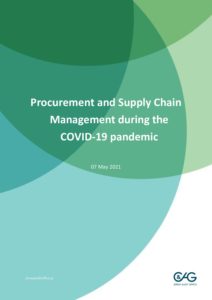
Friday 7 May 2021 - Report

Associate Member of EURORAI - a cooperation project between public sector supervisory bodies in Europe